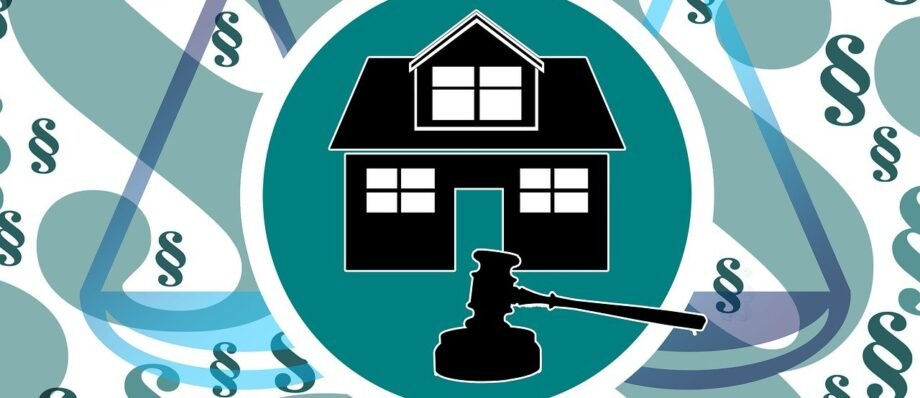How to Prevent Foreclosure and Keep Your Home
Few things in life are as stressful as facing foreclosure. If you’ve fallen behind on your mortgage payments, you may be wondering: Is there a way to stop foreclosure and save my home? The good news is, yes, there are multiple ways to delay, prevent, or even completely stop foreclosure proceedings—if you act quickly.
In this guide, we’ll explore the steps you can take to prevent foreclosure, legal options available to you, and proactive measures to keep your home.
1. Understanding the Foreclosure Process
Before diving into solutions, it’s important to understand how foreclosure works. The process varies by state, but generally follows these steps:
- Missed Payments – After missing a few mortgage payments, you’ll receive a notice of default from your lender.
- Pre-Foreclosure – The lender gives you a period (usually 30–90 days) to catch up on missed payments or negotiate alternatives.
- Foreclosure Filing – If no resolution is reached, the lender files for foreclosure and sets a sale date for the property.
- Public Auction or Sale – The home is sold at auction or repossessed by the bank.
- Eviction – If the home is sold, the homeowner must vacate.
Acting quickly before the process reaches later stages is key to stopping foreclosure.
2. Ways to Stop a Foreclosure
A. Contact Your Lender Immediately
The first and most crucial step is to communicate with your lender as soon as you realize you’re struggling with payments. Many lenders are willing to work with homeowners through:
- Loan Modifications – Adjusting the terms of your mortgage to make payments more manageable.
- Forbearance Agreements – Temporarily pausing or reducing payments while you regain financial stability.
- Repayment Plans – Structuring a plan to catch up on missed payments over time.
B. Apply for a Loan Modification
A loan modification changes the terms of your mortgage, which may include:
✔ Lowering the interest rate
✔ Extending the loan term
✔ Rolling missed payments into the loan balance
This can make your payments more affordable and help you avoid foreclosure.
C. Reinstate Your Loan
If possible, you can reinstate the loan by paying the overdue amount (plus fees) in a lump sum before the foreclosure sale date. Some lenders allow partial payments or alternative arrangements.
D. Consider Refinancing
If you still have good credit, refinancing can help you secure a new mortgage with lower monthly payments, making it easier to stay current.
E. Sell Your Home Before Foreclosure
If keeping the home isn’t an option, selling it before foreclosure can prevent damage to your credit score. Options include:
- Traditional Sale – Listing your home and using the proceeds to pay off your mortgage.
- Short Sale – Selling for less than you owe, with lender approval.
F. File for Bankruptcy (As a Last Resort)
Filing for Chapter 13 bankruptcy can halt foreclosure immediately through an automatic stay. It allows you to restructure debts and create a repayment plan, but should only be considered if other options fail.
3. Government Programs That Can Help
Several government-backed programs assist homeowners facing foreclosure:
- Homeowner Assistance Fund (HAF) – Provides financial aid for mortgage payments.
- FHA & VA Loan Forbearance – Federal programs offering relief for borrowers with FHA or VA loans.
- Making Home Affordable (MHA) Program – Helps eligible homeowners modify their loans.
Check official government websites or HUD-approved housing counselors for eligibility.
4. Protecting Yourself from Foreclosure Scams
Desperate homeowners are often targeted by scams promising foreclosure relief. Be cautious of:
❌ Companies demanding upfront fees for mortgage help (illegal in many states).
❌ “We Buy Houses” offers that seem too good to be true.
❌ Fake government agencies requesting personal information.
Always verify assistance programs through official sources like HUD or your mortgage servicer.
5. Steps to Take Immediately if You’re Facing Foreclosure
If you’re struggling with mortgage payments, follow these immediate steps:
✔ Call your lender – Ask about repayment plans or loan modification options.
✔ Seek legal or financial advice – Consult a foreclosure attorney or housing counselor.
✔ Explore government assistance – Look into relief programs that fit your situation.
✔ Don’t ignore notices – Respond to foreclosure warnings promptly to keep your options open.
Conclusion: Take Action Before It’s Too Late
Yes, you can stop a foreclosure on your home—but only if you act quickly. Whether through loan modifications, refinancing, government aid, or even selling the home, there are multiple ways to prevent foreclosure and protect your future.
If you’re facing financial hardship, don’t wait until it’s too late—reach out for help now. Contact your lender, seek professional guidance, and take proactive steps to save your home and your financial stability.
FAQs
1. Can a lender foreclose on my home without warning?
No, lenders must follow legal procedures, including sending notices and providing time for repayment options before foreclosure.
2. How long do I have to stop foreclosure?
This depends on your state, but usually, foreclosure doesn’t start until 90+ days of missed payments. The sooner you act, the better.
3. Does foreclosure ruin my credit?
Yes, a foreclosure can drop your credit score by 100–160 points and stay on your report for up to seven years.
4. What happens if I file for bankruptcy?
Filing for Chapter 13 bankruptcy can temporarily stop foreclosure and give you a chance to restructure payments.
5. Should I hire a foreclosure attorney?
If you’re unsure about legal options, consulting a foreclosure attorney can help you navigate solutions effectively.
Get the Compensation You Deserve After Your Accident
If you’ve been injured in a car crash that wasn’t your fault, don’t settle for silence or confusion. Lawayer.com connects you with› experienced attorneys who can fight for your rights and help you recover what you’re owed. Time matters—take the first step now



